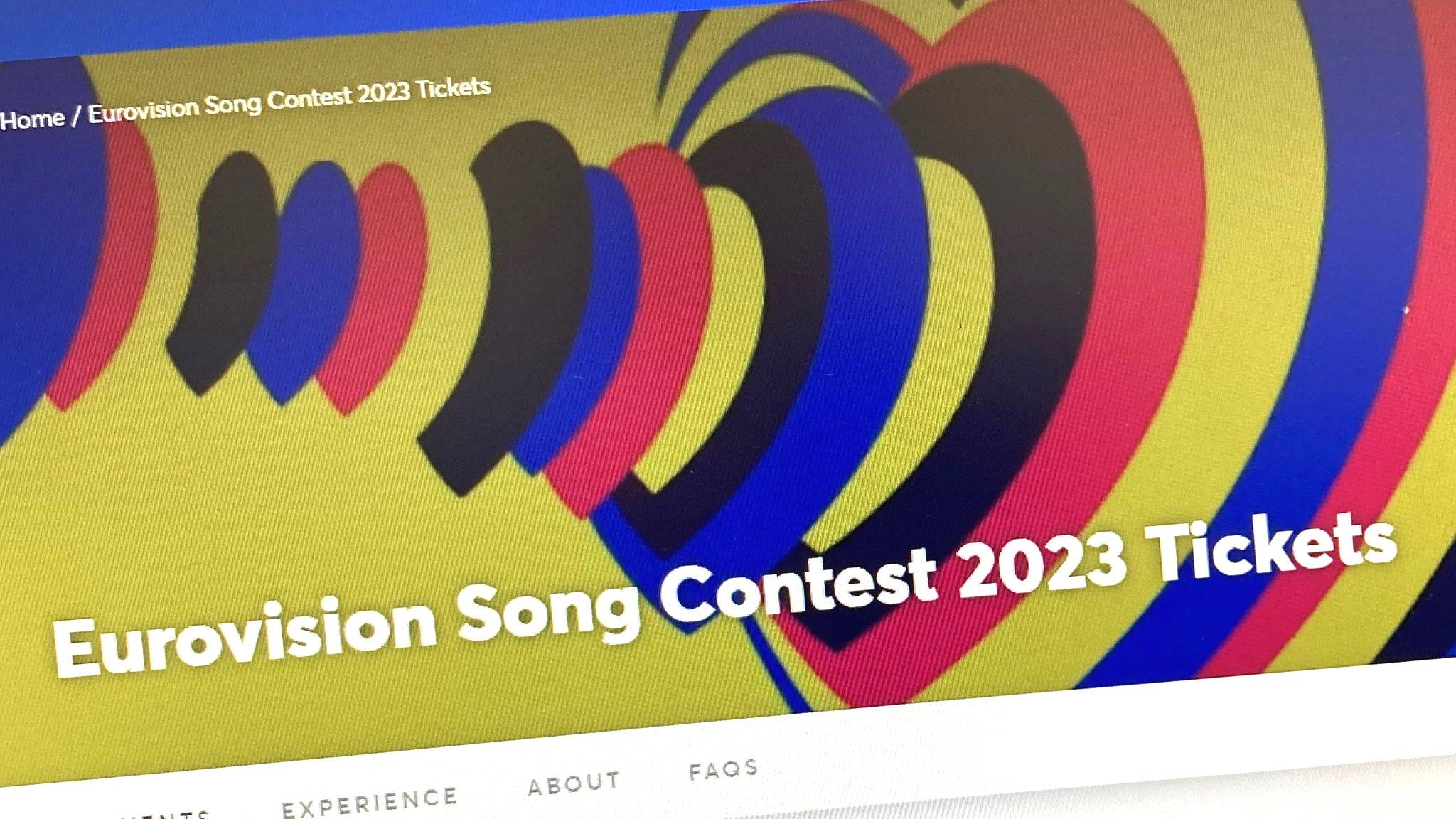Eurovision tickets: How touts get to the front of the online queue
- Published
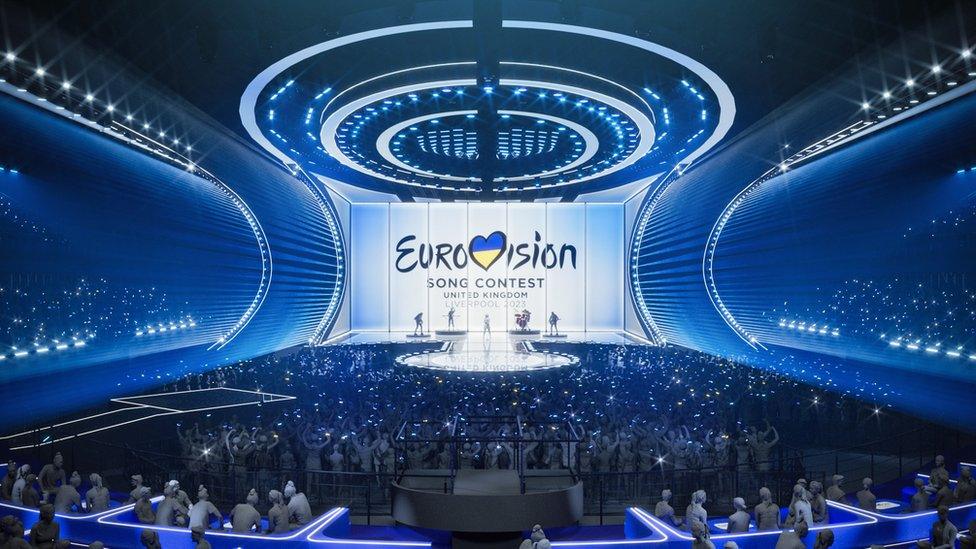
The hottest ticket in town - but not everyone got their hands on one
If you tried to get Eurovision 2023 tickets you were almost certainly disappointed - the grand final in Liverpool sold out within 36 minutes.
That feeling of missing out as soon as sales open, then seeing inflated prices elsewhere will be familiar to many concert-goers.
But you might not have realised you weren't just competing with other fans for those face-value tickets.
Hundreds of bots - sophisticated software that pretends to be a real person - were also in taking up spaces in the queue ahead of genuine fans.
And it's not just Eurovision.
Trainers, games consoles and other in-demand items are also targeted and sold at a profit by scalpers.
Now a BBC investigation has discovered how it happens so quickly.
Queue barging
To illustrate how it works, we joined the queue for Eurovision tickets on Tuesday, and brought some experts with us.
Like many others, we quickly found ourselves 2,000 or more spaces from the front.
Matthew Gracey-McMinn, who works for anti-bot company Netacea, says we're seeing a digital version of queue-barging, or pushing in.
"Think of them as hundreds of friends," he says.
But they're not friends. They're not even real. But as far as the system is concerned they are.
"Because it's all digital, they can create these sort of imaginary people to barge into this imaginary queue," says Matt.

Expert Matt says touts will turn to commercial data centres to boost their computing power
Matt says even the basic laptop he's using can mimic thousands of people. More ambitious scalpers will turn to the cloud to recruit even more processing power.
"Imagine the big server racks you see in movies that hackers have," Matt says, describing large rooms full of dedicated network devices.
"They're hiring those off cloud computing companies and firing all of that power into this."
If you've ever felt like you don't stand a chance of getting tickets, there's a good chance this is why.
The Golden Circle
There are dozens of groups using bot software to attack online queueing systems - so many, that Matt says his company can't track them all.
One, called The Golden Circle, provides members with what they need to beat the online queues.
For £99 ($118) a month they're granted access to the circle and guidance on using a "queue pass" - computing code for manipulating ticketing systems.
One of the group's founders, Josh Silverman, makes promotional videos talking about the money made from tickets by the group's membership of about 400 people.
Speaking to the BBC, Josh, 34 and from London, says he previously used the software to buy limited-run trainers at retail price before selling them on at a huge profit.
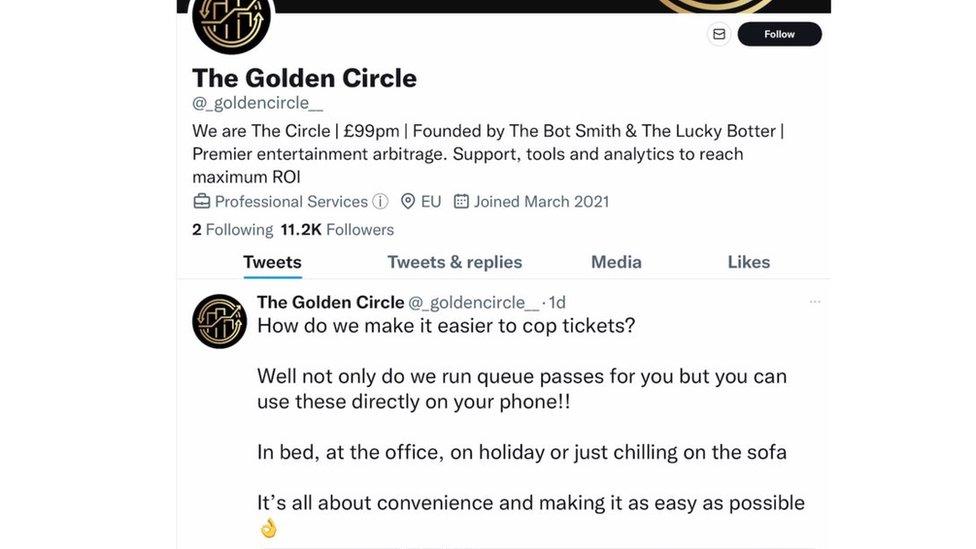
One of the groups using software to beat ticket queues is The Golden Circle - its Twitter account was removed after our investigation
In the UK, it's illegal to use bots to buy more tickets than the promoter or venue allows.
But Golden Circle's software doesn't bulk buy - it purchases small numbers of tickets in multiple transactions.
What's being done?
Since we approached Golden Circle, the group's deleted its social media presence. But there are others and makers of queueing software describe tackling touts as a "constant battle".
As soon as the companies change their system, the bot makers update their software, sometimes within minutes.
Stuart Galbraith is Ed Sheeran's promoter and boss of event promoter Kilimanjaro Live.
As you might expect, he's a long-time campaigner against ticket touts.
He says a small group of "power sellers" are behind the ticket trade in the UK, and stop customers who "could quite legitimately be buying them at face value".
And Stuart says fans miss out in other ways.
"If touts can't shift their tickets at their inflated price, they won't drop the ticket price because it then spoils their marketplace," he says.
"So not all the tickets that are purchased in bulk actually get sold."
Genuine Eurovision fan Josh's attempt to get tickets was an emotional rollercoaster
The BBC spoke to Labour MP Kevin Brennan, who raised our investigation at Prime Minister's Questions on Wednesday.
Rishi Sunak said access to Eurovision should be "as broad as possible", and said the government would "do all that we can to make certain that that happens".
'Absolutely gutted'
Three fans agreed to share their attempts to buy Eurovision tickets with us.
Two of them actually succeeded.
Gina, who had hoped to spend £30, ended up with a £380 standing ticket.
Another fan, Scott got two tickets for a total of £400.
Cheaper tickets usually sell out faster, but bot users also tend to target lower-cost options because there's more profit in the resales.
Our third fan, Ed, didn't get one.
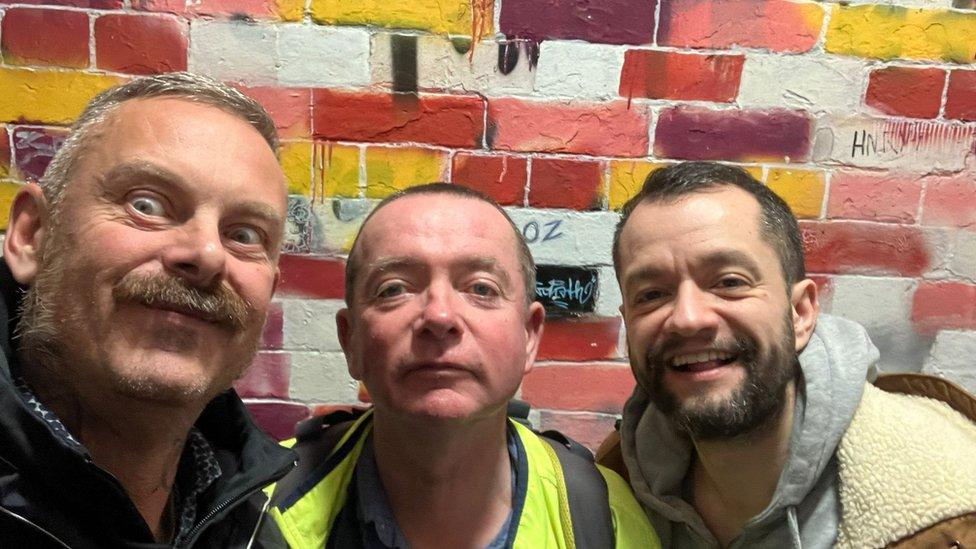
Andrew Earnshaw, on the left here with his Eurovision podcast co-hosts, said he didn't know anyone who got tickets
Andrew Earnshaw, who runs a Eurovision podcast called Eurobliss, was also unsuccessful.
That's despite trying to use a laptop, an iPad and two phones to get tickets.
"One of them clearly was actually working," he says. "It took about an hour and a half to get to the front of the queue."
When he did "there was just nothing available". Andrew says it was the same for everyone he knows.
He says the fact tickets are already on sale for much more on secondary websites is "very depressing"
"This isn't going to happen again probably in my lifetime.
"I can deal with it, because I did my best - but at the same time I'm absolutely gutted - and it's not just me, it's all of my friends."
You and Yours: Secret Ticket Touts exposed, is available on BBC Sounds.


Follow Newsbeat on Twitter, external and YouTube, external.
Listen to Newsbeat live at 12:45 and 17:45 weekdays - or listen back here.
Related topics
- Published9 March 2023

- Published12 May 2023

- Published8 March 2023
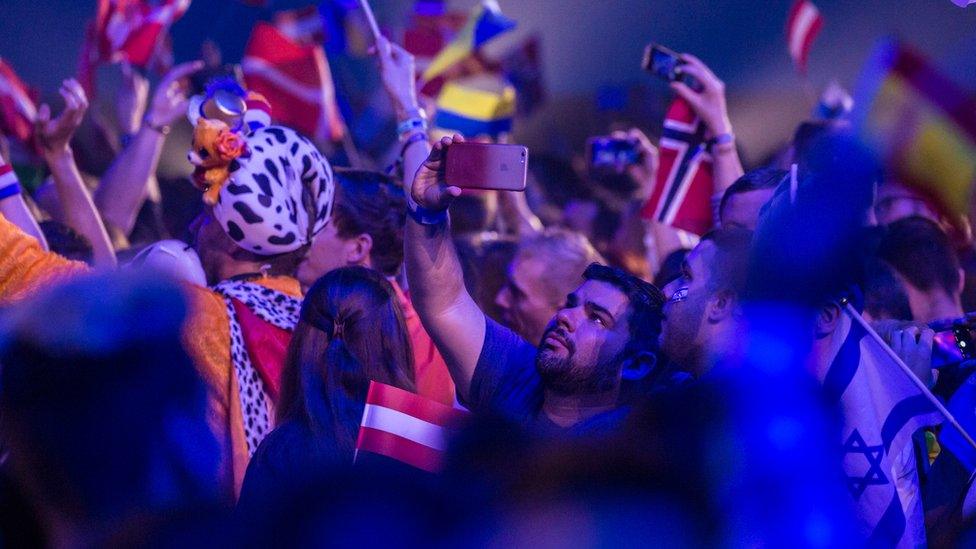
- Published7 March 2023
